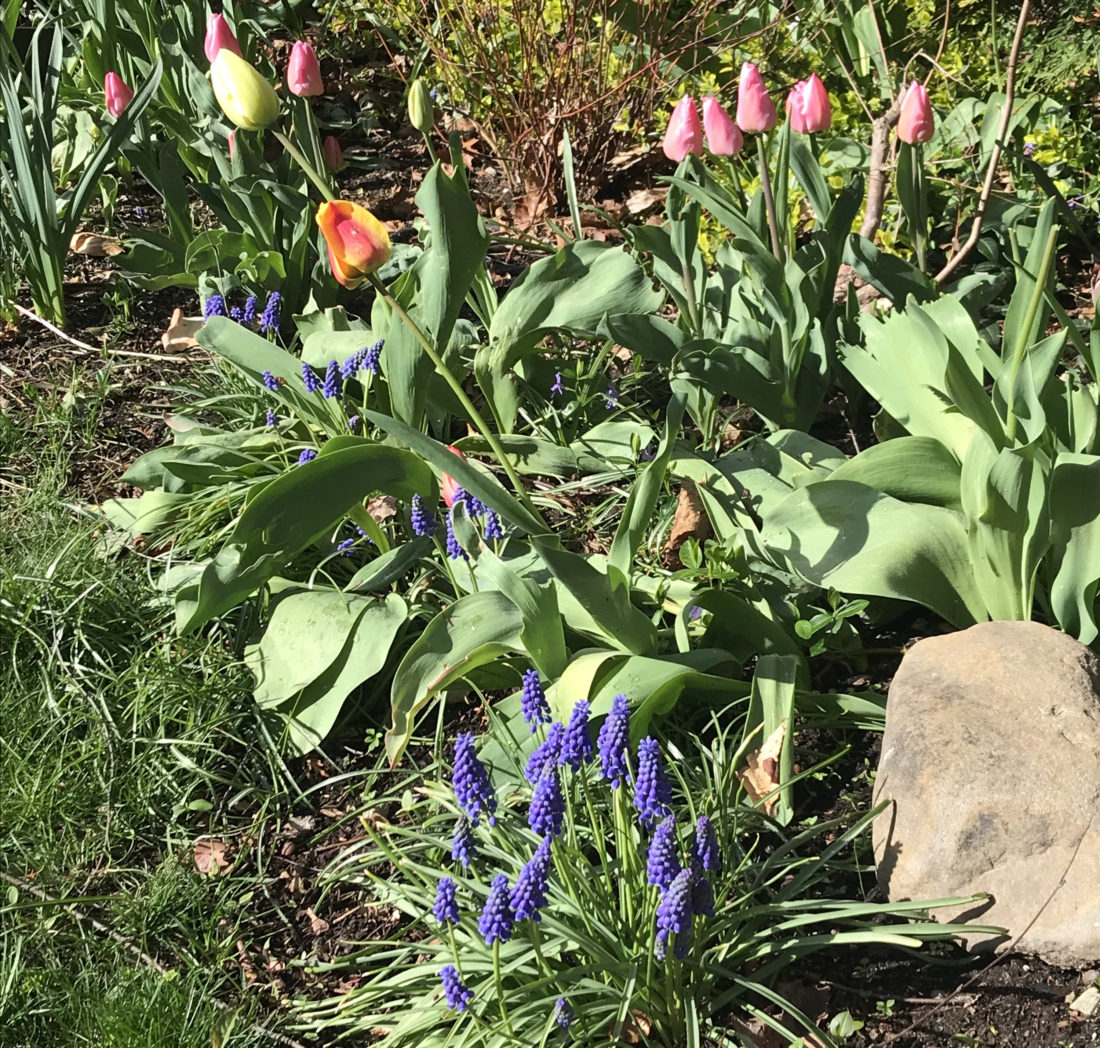My Killing Fields
These mornings as I look out into my garden, I am greeted by the fallen heads of brilliant red, pink and striped tulips blossoms – gems lovingly dug into the soil last November, mulched, long-anticipated and conversed with over a long COVID winter.
The rabbits have been here.
Their tactic seems to be to leap at the flaming heads and topple them from their stems. The snapped parts are cleanly done. They lay like bright British soldiers again the jewel green of the lawn. If this were a botany class, they’d be the prize specimens. But it’s just a small, earnest garden that’s turned into an abattoir. I tour the damage and go back to my kitchen, imagining that they return to munch their exquisite meals under shade of darkness or earliest dawn.
I order a bottle of Liquid Fence, the spray deterrent, and it rains. I dust the beds with ample doses of cayenne and we have days of bluster that blows the particles away.
I start to sympathize with Elmer Fudd, without the shotgun.
We all need to eat, I understand — but why can’t they settle for the violet leaves or the pachysandra?
Then I happen upon this remarkable statement by Jung:
“[God] is the name by which I designate all things which cross my path violently and recklessly, all things which upset my subjective views, plans and intentions and change the course of my life for better or worse.” (Letters, Vol. II, p. 525)
The fractured tulips haven’t changed the course of my life, but they offer a relatively benign threshold into Jung’s wisdom, echoed by every mystic who ever drew breath. We are powerless. Powerless over the likes of rabbits, babies, seedlings — all of those small creatures who bring us such delight and worry and angst — who may well be God’s messengers.
What am I to do with this fact, as it visits me anew in my decimated garden?
I put the kettle on and boil water for a second cup of coffee. My journal lies waiting with a fresh white page on the table. There, I can write and watch the garden as the sun comes fully up. There are many stories to record about the garden, after all, these days. There are the riotous goldfinches, the squirrels that rove between the flowers, the cat that crouches beneath the bird feeder, the red-winged black birds that douse themselves in the shallow stone bath. A complex tapestry of blooming and mating and nesting and rebirth is weaving itself before my eyes. With my pen, I can feast on all of it. In the process, I may even begin to see God’s rationale for rabbits.
Not everything in this life is as easily resolved. We know this. But I believe that what Jung is getting at is the challenge of showing up. Growth and change often snap life’s beautiful organisms in two (or into a million bits) before the threads of a different tapestry slowly and painfully emerge. It is up to us to keep an eye out for the threads and to gently, lovingly nurture them, every day, with pen or prayers or knitting needles or simple presence.
Surrender is the thing we least want to do, but perhaps most need to do. Let the rains come and the winds blow through. Sit down, open the journal. Begin again.
Namaste.





Nancy Rappaport
May 2, 2021at11:53 amLove that idea. Suffering as a teacher. The idea of the tapestry reminds me Of human Bondage William Somerset Maugham has a wonderful quote about our life being like a tapestry.. THank you for your presence and writing.
Kathleen Hirsch
May 2, 2021at3:16 pmThanks, dear Nancy. Viktor Frankl is another one who somehow managed to transform agony and radical injustice into “a way.” Not easy but perhaps essential?
Sending love to you,
K